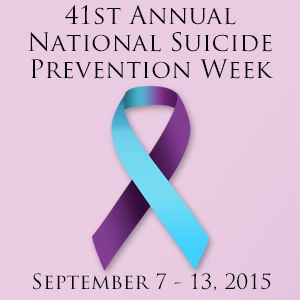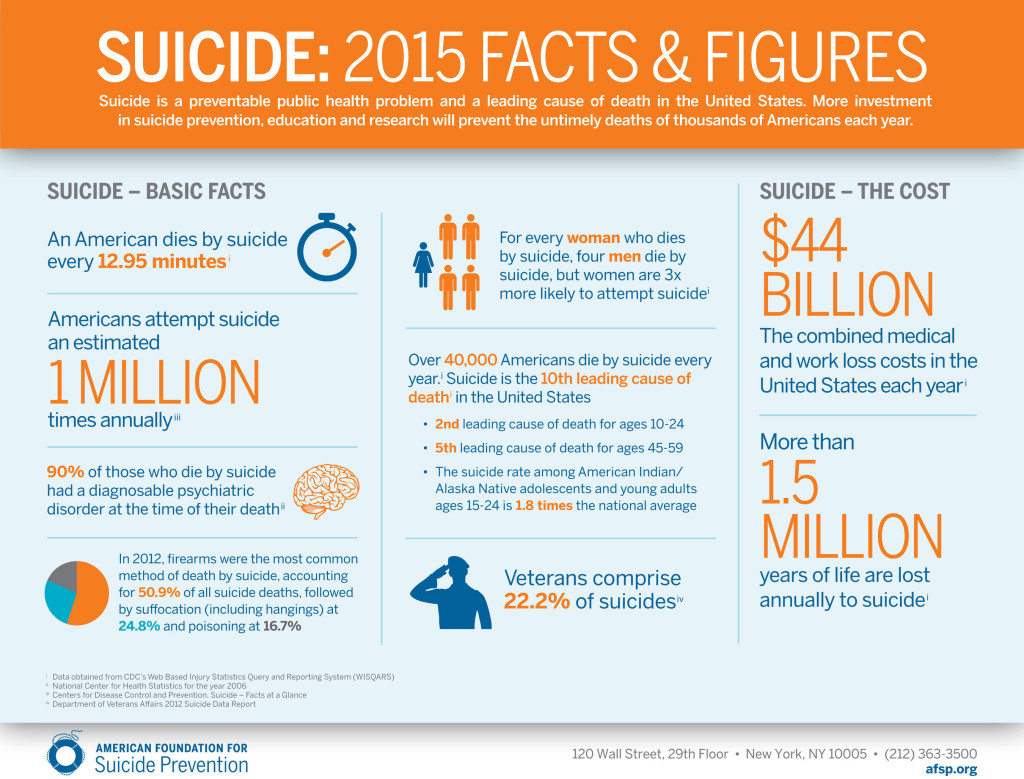National Suicide Prevention Week September 7th-13th
This week marks the 41st Annual National Suicide Prevention Week
Suicide Prevention Is Everyone’s Business!
Here are a few ways to get started for the week:
 Post the 2015 Suicide Prevention Week graphic as your profile picture
Post the 2015 Suicide Prevention Week graphic as your profile picture
Share this message on your Facebook Page and Follow us on Twitter @AASuicidology
Learn the Warning Signs and Risk Factors for Suicide
Make a donation
Host a Suicide Prevention and Awareness Event
Are you a clinician? Take a training!
Are you a school professional? Get Certified!
Contact AAS Central Office with your own creative ideas!
http://www.suicidology.org/about-aas/national-suicide-prevention-week
Know the Warning Signs of Suicide Information by:
AMERICAN ASSOCIATION OF SUICIDOLOGY
How do you remember the Warning Signs of Suicide?
Here’s an easy-to-remember mnemonic:
IS PATH WARM?
I Ideation
S Substance Abuse
P Purposelessness
A Anxiety
T Trapped
H Hopelessness
W Withdrawal
A Anger
R Recklessness
M Mood Changes
A person in acute risk for suicidal behavior most often will show:
Warning Signs of Acute Risk:
Threatening to hurt or kill him or herself, or talking of wanting to hurt or kill him/herself; and or,
Looking for ways to kill him/herself by seeking access to firearms, available pills, or other means; and/or,
Talking or writing about death, dying or suicide, when these actions are out of the ordinary.
These might be remembered as expressed or communicated ideation. If observed, seek help as soon as possible by contacting a mental health professional or calling 1-800-273-TALK (8255) for a referral.
Expanded Warning Signs:
Increased substance (alcohol or drug) use
No reason for living; no sense of purpose in life
Anxiety, agitation, unable to sleep or sleeping all of the time
Feeling trapped – like there’s no way out
Hopelessness
Withdrawal from friends, family and society
Rage, uncontrolled anger, seeking revenge
Acting reckless or engaging in risky activities, seemingly without thinking
Dramatic mood changes
If observed, seek help as soon as possible by contacting a mental health professional or calling 1-800-273-TALK (8255) for a referral.



Comments are closed.